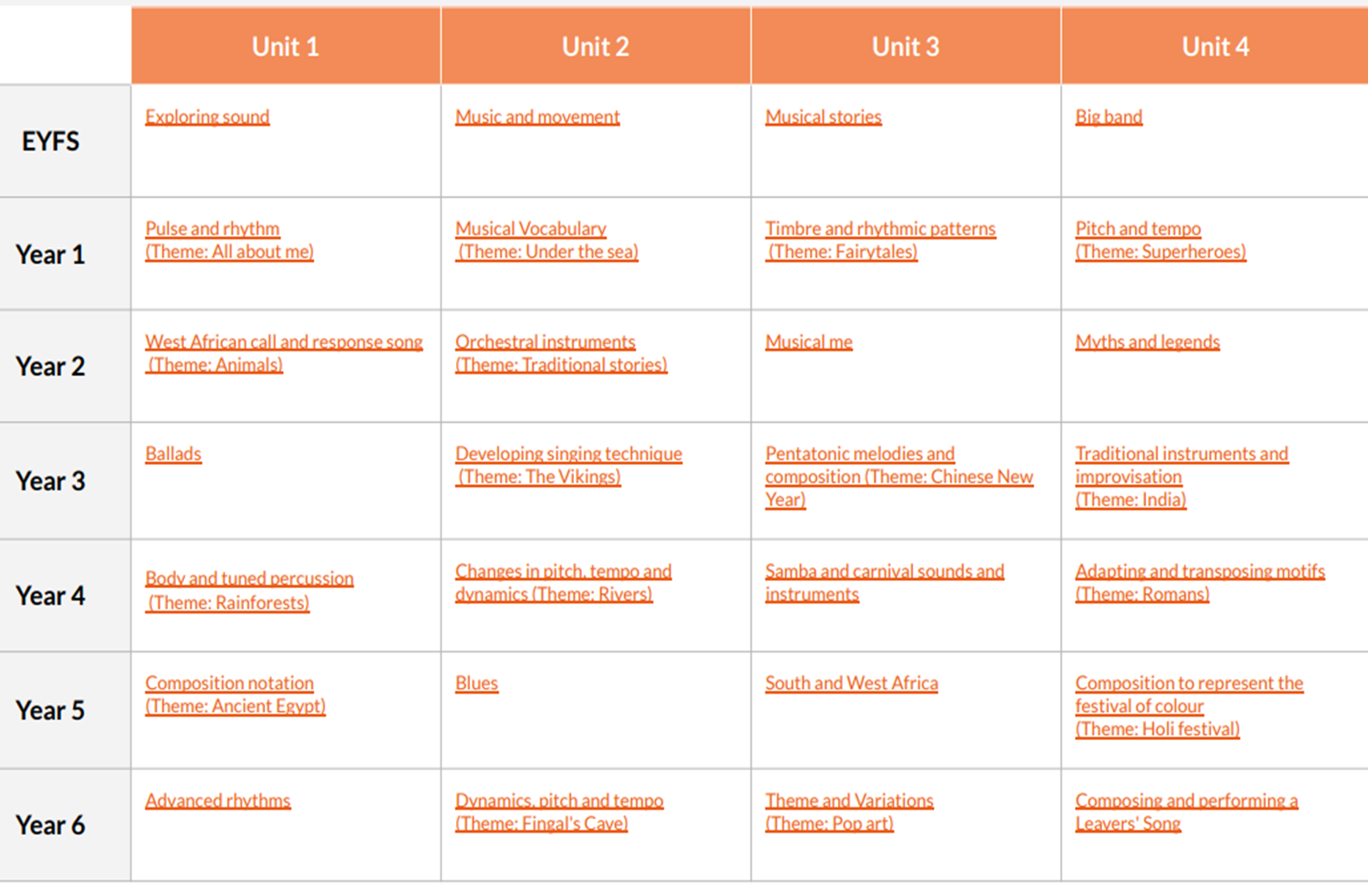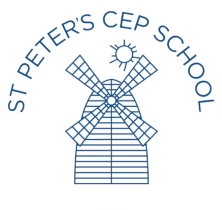Music
Music Education at St Peter’s means that children leaving in Year 6 have experienced:
Our children will have had a broad number of musical experiences during their journey here at St Peter’s. They will have had opportunities to:
- perform to others, including children in the school and their parents.
- create and become part of performances, big and small, locally and nationally
- play tuned and untuned instruments
- receive private tuition from specialist teachers
- explore music from different cultures and genres
- engage in a variety of musical workshops
- celebrate the love of music and understand how music can bring people together
- showcase their musical talent to others
Intent for Music at St Peter’s
The National Curriculum for music aims to ensure that all pupils:
- Perform, listen to, review and evaluate music.
- Are taught to sing and use their voice, to create and compose music, and have an opportunity to learn an instrument and use technology appropriately.
- Understand and explore how music is created, produced, and communicated, including through the interrelated dimensions: pitch, duration, dynamics, tempo, timbre, texture, structure and appropriate musical notations.
At St Peter’s our intention is for the children to gain a secure understanding of what music is. We will promote this through listening, singing, playing, evaluating, analysing and composing. This will take place across a range of historical periods, styles, traditions, cultural and musical genres. It is our desire for every child to develop a life-long love of music, as well as an understanding and acceptance of all styles of music. We are keen to ensure that the children understand the value and importance of music in the wider community and introduce music from around the world. Our children will develop musical skills of singing and playing tuned and untuned instruments and become confident performers. We aim to provide valuable opportunities for children to learn a variety of instruments.
Music is an inherent part of our school and singing will be heard all around, in assemblies and through the learning of other subjects. EYFS will use music throughout their daily learning, they enjoy rhymes, songs and routine chants. Our youngest children have several opportunities during their first year to perform to other children in the school and their parents. Firstly, The Nursery Rhyme Challenge, which comprises of eight learnt rhymes followed by the Christmas Nativity. KS1 will also perform in the Christmas Nativity and will be part of the Christmas and Easter service along with KS2. KS2 will be involved in creating and carrying out their own performance around Easter time. We encourage the children to go on to demonstrate their musical skills through a talent show here at St Peter’s. Years 5 and 6 are given the exciting experience to sing within a large choir at a well-known London venue.
When our children leave primary school, they will take a wealth of musical experiences with them. This will stand them in good stead, should they wish to continue their musical journey.
Implementation of our Music Curriculum at St Peter’s
We teach Music using a scheme of work called Kapow which provides a holistic approach. This scheme follows a spiral curriculum, where previous skills are revisited and built upon. Each new unit of work begins with a recap of the previous related knowledge. This helps children to retrieve what they have learnt and ensures that new knowledge is taught in the context of previous learning, promoting a shift into long term memory. The key knowledge and skills for each year are mapped to build progression. The children will then develop their musical skills systematically, building their knowledge of music from one year to the next.
The scheme teaches students to sing, listen, play, perform and evaluate. These skills are embedded in classroom activities, as well as assemblies, composer, artist or band of the week. Other enrichment activities include music clubs and workshops, tuition to learn an instrument, West African drumming and the school choir. The children are provided with great opportunities to be involved in performances. Through this the children will create their understanding and knowledge of the history and culture of music, staff and the interrelated dimensions of music. Additionally, this widens their experiences and in turn encourages the children to explore their own musical preferences. Outside agencies visit the school to inspire the children further and provide them with an appetite to learn a tuned instrument. At present the children at St Peter’s are learning guitar, brass and woodwind instruments and the djembe drum. As a school we hold a variety of musical workshops throughout the year and celebrate World Music Day as part of an arts week in school.
The children in Year 3 will learn to play the recorder as part of their weekly music lesson. All children in Year 4 learn how to play the guitar by a specialist Music Teacher who comes into school. In doing so, they are able to understand the different principle of each method of creating notes, as well as how to read basic music notation. They also learn how to compose; focussing on different dimensions of music, which in turn feeds their understanding when listening, playing, or analysing music. Composing or performing using body percussion and vocal sounds is also part of the curriculum, which develops the understanding of musical elements without the added complexity of an instrument.
Impact of our Music Curriculum at St Peter’s
The impact of Kapow Primary’s scheme is monitored through both formative and summative assessment, children engagement and pupil voice.
We expect the children to:
- Be confident performers, composers and listener and will be able to express themselves musically at and beyond school.
- Show an appreciation and respect for a wide range of musical styles around the world and will understand how music is influenced by the wider, social and historical contexts in which it is developed.
- Understand the ways in which music can be written down to support performing and composing activities.
- Demonstrate and articulate an enthusiasm and love for music and be able to identify their own musical preferences.
- Meet the end of key stage expectation outlined in the national curriculum for Music.

